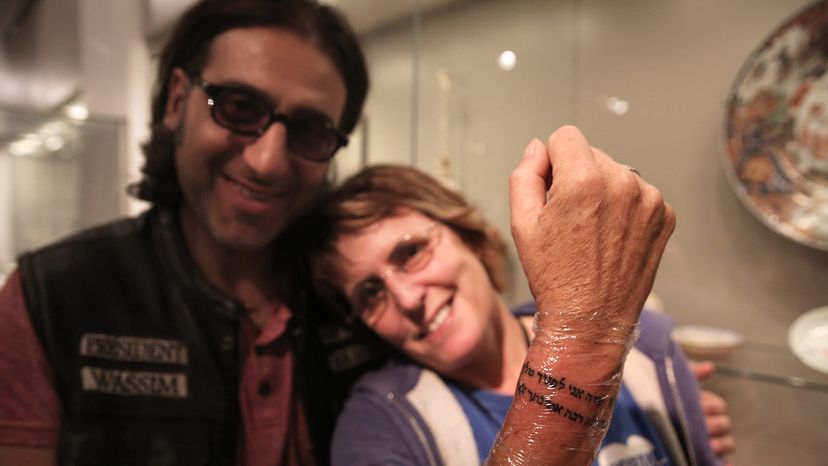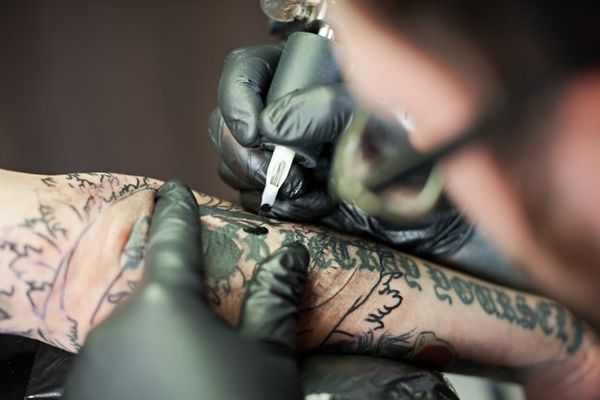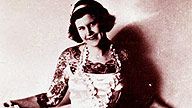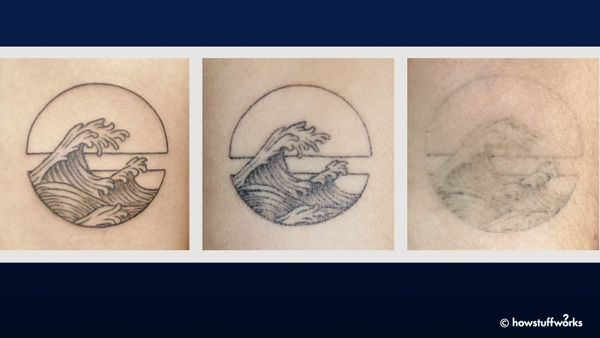According to the company's website, the Razzouk family left Egypt 500 years ago for a pilgrimage to the Holy Land and stayed for the business. Razzouk's ancestors were Coptic Christians, an ethnoreligious community in Egypt. Tattoos were common in their tradition, often in the form of the Coptic cross. For Coptic Christians, it was a permanent display of their faith. In some cases, the tattoo was a bold-faced rebellion against the Islamic ruling power after 640 C.E. that actively forced conversions. Christians who did not convert to Islam were tattooed with the cross and required to pay a religious tax.
At the same time, Christian churches would often check for the cross before letting patrons into their church to ensure they were true followers of the Christian faith. This is how the Razzouks' family tattooing tradition began, in 1300 — tattooing other Copts.
They brought the custom with them from Egypt, realizing that a tattooing culture already existed in Jerusalem. Many pilgrims traveling to the Holy Land wished to receive permanently inked crosses and other religious motifs to mark the importance of their pilgrimage before going home.
"I have tattooed Christians, Palestinians, Ethiopians, Israelis — believe it or not, I've tattooed an Orthodox Jew with sidelocks," said Wassim Razzouk, in a 2022 interview with The New York Times. "I've tattooed nuns, atheists and bishops."
Razzouk said he was taught the art of tattooing by his father, who was taught by his father, Yaqoub. Razzouk's grandfather was the first tattoo artist in Israel to use an electric tattoo machine — powered by a car battery — and the first to add color to tattoos. Razzouk was 33 years old when he learned the art in 2007 during a busy Easter season. No relative in his generation had taken up the craft. "I knew that if it wasn't for me the tradition would disappear," he said. He tattooed his first clients — 25 pilgrims — in a single session.



